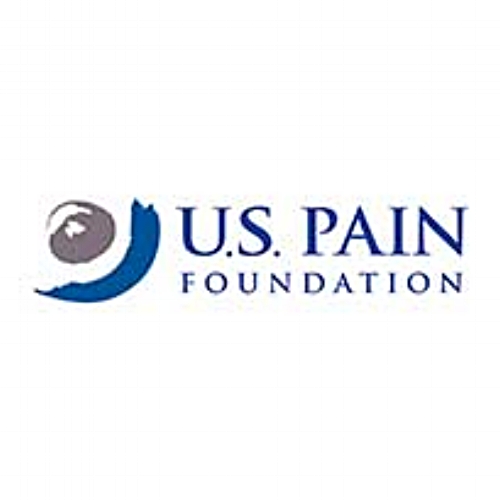U.S. Pain Foundation Pockets $210,000 from Insys Therapeutics
/By Pat Anson, PNN Editor
The U.S. Pain Foundation has decided to keep over $210,000 leftover from a controversial co-pay prescription drug program funded by Insys Therapeutics, a disgraced Arizona drug maker blamed for the overdose deaths of hundreds of pain patients.
The funds have been designated as “unrestricted grant revenue” by the Connecticut based-charity, which at one time claimed to be the nation’s largest non-profit advocacy group for pain patients. The decision to keep the money, which was being held in an escrow account, reverses a previous pledge by U.S. Pain in 2018 that it “will not accept funding from Insys going forward.”
“It has been determined that the funds may be used for charitable purposes consistent with the tax-exempt purpose of USPF in assisting people living with chronic pain. Going forward these funds will be allocated for such purposes,” U.S. Pain disclosed in a recent audit statement. “The escrow reserve of $210,974 was reversed in 2019 and the unrestricted funds were recorded as unrestricted grant revenue.”
Insys and U.S. Pain launched the “Gain Against Pain” program in 2016 with $2.5 million donated by the company. The stated goal of the co-pay program, which was administered by NeedyMeds, was to help patients obtain medication for breakthrough cancer pain.
But the program was apparently only used to generate prescriptions for Subsys, an expensive and potent fentanyl spray that was Insys’ flagship product. A four-day supply of Subsys can cost nearly $24,000.
The Gain Against Pain program was shut down in 2018 after Insys executives were charged with racketeering, fraud, bribery and other criminal charges over their marketing of Subsys. Insys filed for bankruptcy in 2019 and its founder sentenced to 66 months in prison.
Controversy over the co-pay program and other financial irregularities also led to the resignation of Paul Gileno, the founder and CEO of U.S. Pain. Gileno later pleaded guilty to charges of fraud and tax evasion, and served a few months in federal prison.
“We now know that Insys Therapeutics advanced this program using predatory practices and were assisted in doing so by U.S. Pain Foundation via access to the vulnerable populations served by that organization,” said Stefanie Lee Berardi, a patient advocate and grant writer who worked in nonprofit management.
“Nonprofits receiving large charitable donations have a duty to ensure the source of those funds is both legal and ethical before those funds are accepted. Once the funds are accepted, it is very difficult to give those funds back.”
The $210,000 in leftover co-pay funds would be a significant amount of money for most charities. U.S. Pain had over $1.4 million in revenue according to its 2019 tax return, about 30% less than the year before. The charity also disclosed in its audit statement that it received $92,805 this year from the federal government’s Payroll Protection Loan Program.
Questionable Spending
Under Gileno’s leadership, there was virtually no oversight of spending at U.S. Pain, which used donated funds to pay for highly questionable purposes, such as operating a money-losing bakery, loans to Gileno’s brothers and a family vacation to Universal Studios in Florida. The charity now has a chief financial officer and a new board of directors, and says it has other safeguards in place to prevent further fraud.
U.S. Pain CEO Nicole Hemmenway, who was vice-president and board chair under Gileno, did not respond to a request for comment for this story.
The charity’s audit statement indicates the $210,974 was received in two checks from NeedyMeds and had not been spent or earmarked for any program. Classifying the funds as unrestricted grant revenue means they can be used for any purpose – not just helping cancer patients.
“What I am really not understanding is why U.S. Pain chose to accept these as unrestricted funds, rather than to a restricted fund that would help individuals and families who were harmed by Insys’ co-pay program,” Berardi said in an email.
“Given that they haven’t yet done so, it is now imperative that they clearly define how those monies will be used. It is still possible for them to do the right thing. Should they choose to, they may find that they can mitigate the reputational harm sustained as a result of unethical and illegal business practices for which their CEO went to prison and an irresponsible board of directors who failed to meet their duty of care.”
Another critic believes U.S. Pain should donate the money to another charity.
“Given what has come out about both Insys and the U.S. Pain Foundation, the ethical thing to do would have been to give the money to a nonprofit organization that provides treatment for opioid use disorder,” said Adriane Fugh-Berman, MD, Director of PharmedOUT, a program at Georgetown University that seeks to expose deceptive marketing in the healthcare industry.
Co-pay prescription drug programs – also known as co-pay charities – are ostensibly designed to help needy patients pay for prescription drugs. But in recent years, several major pharmaceutical companies have paid heavy fines to settle fraud allegations that they used co-pay programs to steer Medicare patients to their high-priced drugs.
The assistance programs typically pay only a small amount for the prescriptions, with the rest of the cost picked up by Medicare. Federal anti-kickback laws prohibit drug companies from making any kind of payment to induce Medicare patients to purchase their drugs.





























